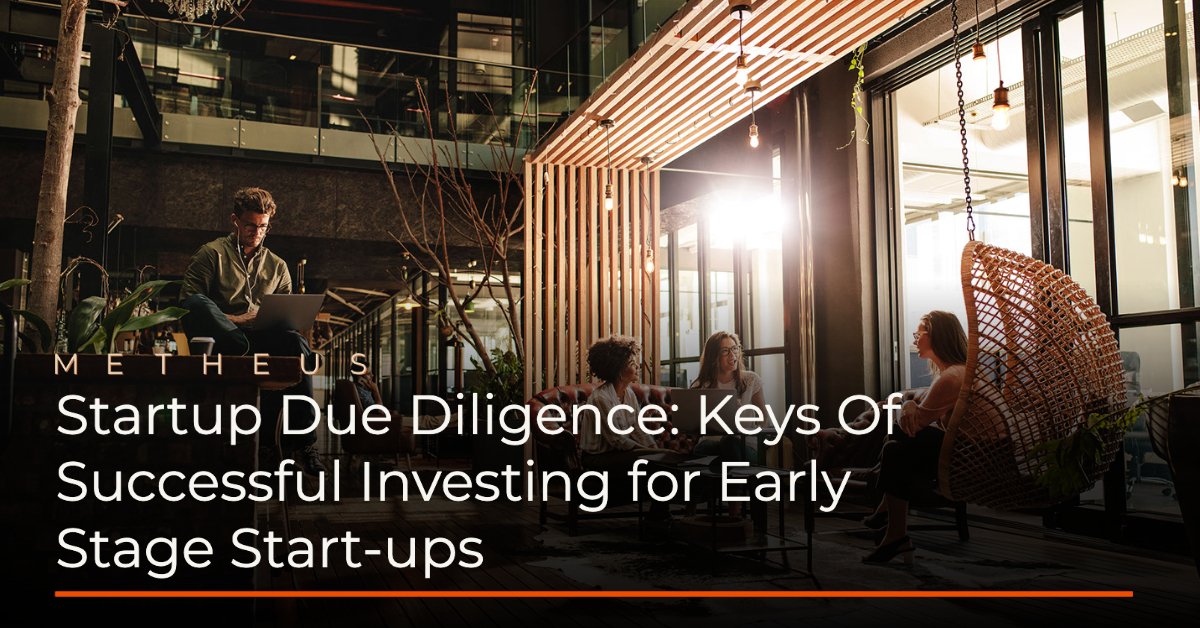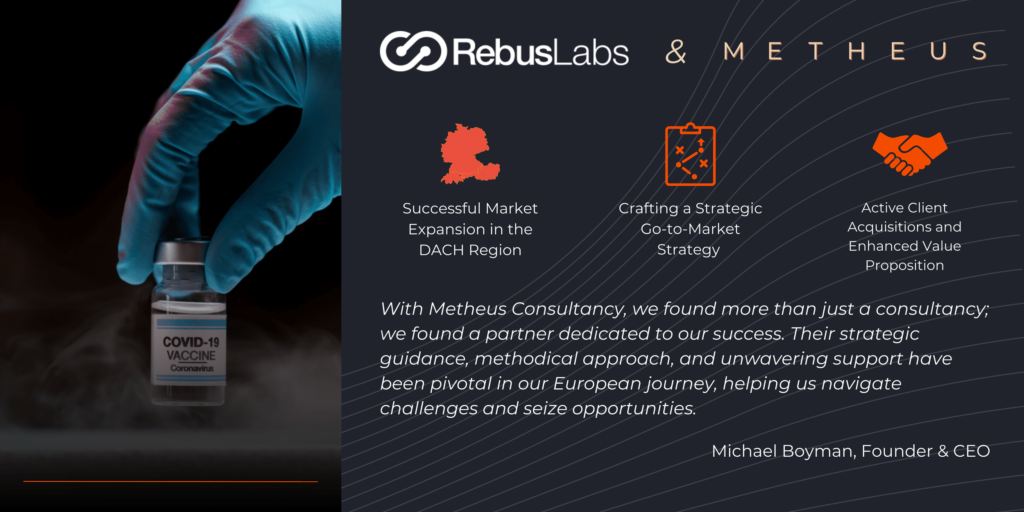An increasingly common method for investors to make large profits is to invest in startups. However, making an investment in a startup requires having a firm understanding of the company, its sector, and its founders.
If proper due diligence is not performed, unforeseen risks and uncertainties can easily catch investors off guard because 75% of venture capital-backed companies fail internationally. According to a Statista analysis, 35% of start-up failures are attributable to the market not having a demand for the startup’s product, 20% are due to the startup being outcompeted, and 19% are related to the firm having a poor business model. This study emphasizes the need of investors thoroughly evaluating a startup’s growth potential, market opportunity, and overall viability before making an investment.
To shed light on this topic, we have partnered with Melih Aktay, previous Word Economic Forum Associate Director, Founder & CEO of Oceanfunders SA fund management company. Based in Geneva, Oceanmakers SA has built a reputation as a trusted investor for startups, venture capital funds, and real estate projects. The company’s team of experienced professionals brings a wealth of expertise and knowledge to every investment project they undertake, ensuring that their clients receive the best possible support and guidance throughout the investment process.In this article, we’ll explore the key factors that early-stage startup investors should consider when conducting due diligence on potential investments.
What’s wrong with angel investment and early stage startups?
Angel investing is not always successful. An angel investor investing $1 million in a firm at its infancy and then watching it fail is not uncommon. According to Startup Genome’s 2022 Global Startup Ecosystem Report, 9 out of 10 startups fail, and the percentage falls even lower when you just consider businesses with fewer than 20 people.
Why do so many startups fail?
Mr. Aktay said that “There are a lot of reasons why early stage startups fail, and a lot less reasons why only a few of them succeed. Some common reasons for failure are poor product-market fit, poor execution and poor team composition. Some founders hide these issues by throwing money at them. Investors should have the capacity to read and see beyond superficial investor updates, and take corrective action if necessary. Therefore, I highly recommend pure financial investors to insure themselves against such risks by investing along an anchor investor that has the experience, resources and capacity to keep the investment and founders in check.”
There are many factors involved, but one of the biggest reasons is product market fit. 38% of startup failures are caused by an unfit market and product: if your business isn’t solving a problem or filling an unmet need that customers are willing and able to pay for, then it’s unlikely that you’ll reach profitability any time soon.
So, what should investors evaluate when considering investing in one?
Mr. Aktay answered: “Most investors rely on their gut feeling and ask themselves if the product or service offered by the startup is needed in the market. Although this is a good starting point, it is highly biased. Who would trust in a survey with a sample size of 1 person only? Therefore, investors must seek to gather as much unbiased information as possible to assess the market need for the product or service offered. I’m also a big believer in picking the right founders. The right founder, even if he or she fails with the first or even second start-up, he or she will succeed eventually.”
When evaluating an early-stage startup for investment, there are several critical factors that investors must consider:
-
First and foremost, it’s crucial to determine whether the issue the business seeks to address genuinely exists. This involves analyzing the market and determining whether there is a significant demand for the product or service being offered.
-
Investors must also assess the likelihood of a workable solution. This entails assessing the market’s potential and calculating the likelihood that the suggested solution will be effective.
-
Additionally, investors should also consider the startup’s unique selling proposition (USP), differentiation, technology, and any advantages over competitors.
-
Growth potential must be assessed for each investment decision. This includes evaluating market size, potential competition, and the scalability of the business model.
-
The team is another critical factor to evaluate, as a strong and experienced team can greatly increase the chances of success.
-
Finally, investors must set realistic expectations and goals for the startup, taking into account the industry, market, and competition.
By understanding the factors that influence investment decisions, investors and venture capitals can make informed choices and increase their chances of success.
Let’s dive deeper into these factors:
1. Problem Identification
Before investing in an early-stage startup, it’s essential to identify the problem that the startup aims to solve.
-
What is the problem the startup is solving? Investors should have a clear understanding of the problem the startup is trying to solve and why it matters. They should also ensure that the problem is significant enough to create a market opportunity.
-
Who are the problem owners? It’s essential to identify the audiences who are experiencing the problem and determine whether the startup’s solution meets their needs. The number one reason why startups fail is due to misreading market demand — this is found in 42% of cases. Thus, investors should consider the size of the potential customer base and whether it is growing.
-
Is there any indication that problem owners will grow? To determine the market potential of the startup, investors should also have a look at market trends and determine whether the number of potential problem owners is likely to increase. This can be done by examining behavioural changes in potential consumer or any market shifts.
As Metheus Consultancy, we help investors determine whether the startup has a market opportunity and whether its solution is likely to be successful. We can also provide valuable country insights and research to help investors better understand the target market, thus allowing them to make informed decisions about their investments and mitigate risks.
2. Market Potential & Existing Solutions
To make an informed investment decision, it’s crucial to assess the market potential for the startup’s solution and evaluate how it compares to existing alternatives.
According to Mr. Aktay:”Competitor analysis is one of the most important tools to assess market potential. Many founders will claim that they have a blue ocean strategy and their product or service is unique. This is rarely true. After all, consumers or potential clients have limited resources such as budget and time. This means, when utilizing these resources, they will make choices, and prefer one product or service over the other one. And sometimes this choice might be between incomparable options. A person may prefer to spend his money on an expensive dinner as opposed to buying a pair of sneakers. Therefore, one should ask, when evaluating the market potential of a product or service the following question: Who competes against me to capture the limited resources of my potential customers?”
Who are/will be the startup’s buyers? Identifying the target potential segments and their decision making processes are critical. Investors should assess whether the startup’s solution can attract its potential audiences.
-
How will the startup reach out to their customer segments? Startups should have a clear plan for how they will reach out to their customer base. Investors should assess whether the startup has a viable plan for reaching its target customers and whether it is feasible.
-
How will the startup build customer relationships and retain customers? Strong customer relationships are crucial to the success of any startup since 14% of startups fail due to not regarding customers’ needs according to a research done by Fundera.
-
What are the primary solutions today? Understanding the startup’s market potential requires an examination of the current alternatives to its offering. Investors should study the competition’s strengths and shortcomings, as well as if there is place in the market for a new competitor.
-
What will be different about the startup compared to its competitors? Investors should consider if the startup has a differentiating selling proposition (USP) from its competitors. They must analyse the startup’s competitive advantages and determine whether they are sustainable. Mr. Aktay said: “To differentiate itself from competitors, startups must be able to see beyond the perceived needs of their clients. A classic example is the cameras on smart phones. Until cameras were put on phones, only a few people might have felt the need to have a camera on a phone. Today, it has become indispensable. What are the unknown needs of your clients? What are the future needs of your clients?”
-
What’s the startup’s business model? Investors should evaluate the startup’s business plan to see if it is sustainable and lucrative. They should also consider if the business model is in line with the aims and vision of the startup because around 40% of startups are profitable and it may take a long time for a company to generate money.
Investors can better assess the startup’s potential for success and whether it corresponds with their investment aims by considering these aspects. We provide significant insights and tools to assist investors analyse a startup’s market potential and solution at Metheus Consulting. Our business validation methodology and decision intelligence dashboards give a thorough examination of market trends, consumer behaviour, and competition to assist investors in making the best decisions.
3. Team / Company
The startup’s team is one of the most critical factors for success. Investors should evaluate the experience and expertise of the founders, as well as their ability to work together effectively.
Melih Aktay said:”People make or break the company. A determined, focused and resilient founder is a must. This founder must have the capability to attract and keep good talent in the company. It is also crucial to ask, how much of their time the people are dedicating to the company. It has become commonplace that talented individuals work in several companies and projects at once. So, just we see amazing people in the team of a target investment, does not always mean that these people are 100% involved.”
-
What city is the startup based in, and what advantages does this location offer? A startup’s location can have a significant impact on its success. Being in a city with a thriving startup ecosystem can provide access to resources like incubators, government support, and venture capital. It can also offer opportunities to build a network of mentors, advisors, and potential customers.
-
How many founders are on the team, and do they have relevant job experiences? A startup’s founding team should have a mix of skills and experiences that are relevant to the problem they are trying to solve. Ideally, the team should have a good balance of technical and business skills. Also, it is a big plus for the founders to have past startup experiences because in Europe, the percentage of startups that fail is 82% for first-time startup owners.
-
How long have the founders known each other, and how did they meet? Founders who have known each other for a long time and have worked together before are more likely to have a strong working relationship.
-
Describe the stage of the company and the progress they have made. Investors should evaluate the startup’s progress to date and determine whether they have achieved significant milestones. It is also important to assess whether the startup is at a stage where it is ready for investment.
-
If the startup already has customers, how did it get them, and does it have any other numbers on traction? Investors should evaluate the startup’s customer acquisition strategy and assess whether it is effective. They should also look at metrics like customer acquisition cost (CAC), average customer value (ACV), customer lifetime value (LTV), churn rate, and referrals.
Investors can better comprehend the startup’s chances of success by evaluating the personnel and business. Investors may use business validation processes and decision intelligence dashboards from Metheus Consulting to make educated investment decisions.
4. Growth Potential
Assessing a startup’s growth potential is critical for investors. By evaluating the company’s market entry plan, target goals, and expected projections, investors can determine whether the startup has the potential to achieve sustainable growth.
Mr. Aktay thinks: “Unless we are talking about a startup that serves a very niche market such as a company that delivers components for space rockets, it’s wise to focus that the growth of the company is not limited by resources or geography. In any given company, if the output/resouce ratio is linear, the growth of this company can be expected to be rather slow. And of course, target geography plays an important role, too. While startups from mid-sized countries with populations from 50 to 100 million might tend to focus on the local market, start-ups from smaller companies usually kick off with a global mindset and aim to provide products or services that can cater the global market. An investor should be aware of such nuances and ask the right questions before making a decision.”
-
What is the market entry plan of the startup? Investors should evaluate the startup’s market entry plan and determine whether it is feasible and attainable. They should assess the startup’s strategy for reaching its target market, taking into account its message, channels, and consumer groups. Mr. Aktay said: “Correct communication is key and must be done by professionals. Most great ideas, products and services die just because they were not communicated properly to target audiences.”
-
What are the target goals? The startup’s target goals must be evaluated in order to ascertain its profitability. The startup’s short- and long-term objectives, including revenue targets, user acquisition targets, and other key performance metrics, should be reviewed by investors.
-
Expected projections? Investors need to evaluate the startup’s estimates and underlying assumptions, including revenue, costs, and profit margins.
To assist investors better grasp the startup’s development potential and make wise investment decisions, Metheus may offer comprehensive market growth predictions, decision intelligence dashboards, and tested go-to-market plans. Investors may assess the startup’s development prospects and evaluate whether it fits with their investment objectives by weighing these variables.
5. Investor – Start-up Fit
Investors evaluate whether a start-up aligns with their investment goals and portfolio by assessing factors such as funding requirements, valuation, and potential exit or pivot paths.
-
How much capital does the startup need, and at what valuation? Investors should assess the start-burn up’s rate and runway in addition to determining whether the capital requirements match their investment objectives and risk tolerance. This can reveal how long a start-up can run on the money it receives and how much further capital it could require in the future.
-
Has the startup received any non-dilutive funding, such as grants or prize money? Non-dilutive capital can not only provide significant validation and support for a start-up, but it can also assist the start-up in preserving its equity and reducing dilution for future investors. Investors should consider if the startup has gotten non-dilutive capital.
-
What is the startup’s cap table, including information on everyone who owns part of the company and how much they own? The startup’s option pool and any possible future dilution should be taken into account by investors in addition to the cap table. Investors may have a better understanding of the startup’s possible stock structure and future valuations by doing this.
-
Has the startup formed a legal entity yet? Investors should assess any potential legal or regulatory risks related to the start-industry up’s or product in addition to the legal entity of the start-up. This can aid investors in understanding the possible benefits and pitfalls of starting a business.
-
What exit or pivot paths do the founders see for the company? Do the founders aim to continue developing through internal investment, external capital, or both? Do they unquestionably take into account a potential sale or IPO at some point? Mr. Aktay said: “Key investors are crucial for successful exits. Founders, from the first day onwards should seek the investment of key investors that can help them to go through the next funding stages. To have such an investor on board is not only a great boost for the startup but also is a big relief for other investors involved.”
-
Have they raised money so far? How much? The startup’s fundraising history might give investors important information for assessing the likelihood of future funding. It’s crucial to think about the origin, conditions, and alignment of past fundraising rounds with the objectives of the investor.
To ensure a successful partnership, it’s important for both the start-up and investor to have a mutual understanding of each other’s goals and expectations.
Early Startup Due Diligence
In conclusion, investing in start-ups can be a high-risk but potentially high-reward opportunity for investors. However, it is important for investors to thoroughly evaluate potential start-up investments to ensure they align with their investment goals and risk tolerance. Whether you’re a start-up looking for funding or a venture capital fund seeking strategic investments, OceanMakers SA has the resources and expertise to help you achieve your goals.
Evaluating the team, market potential, growth potential, and investor-startup fit can provide valuable insights for investors. With the help of decision intelligence dashboards and detailed market growth forecasts, investors can make informed decisions about potential start-up investments. At Metheus Consultancy, we offer these tools and services to help investors evaluate start-up opportunities and make informed investment decisions. To learn more, contact us!








